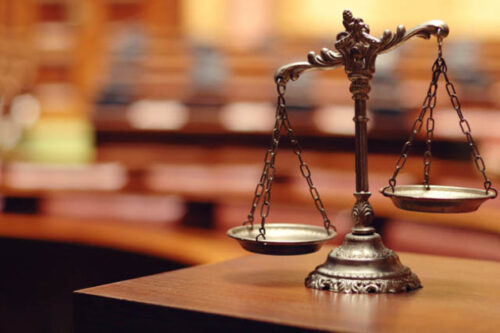ANALYZING THE ROLE OF THE JUDICIARY IN UPHOLDING THE INDIAN CONSTITUTION
Introduction: The judiciary plays a crucial role in upholding the Indian Constitution, which serves as the bedrock of the country’s democratic framework. As the guardian of the constitution, the judiciary acts as a bulwark against any attempts to undermine the fundamental principles enshrined in the document. This article aims to analyze the role of the judiciary in upholding the Indian Constitution and its impact on the country’s legal system and democratic fabric.
Body:
- Safeguarding Fundamental Rights: One of the primary responsibilities of the judiciary is to safeguard the fundamental rights guaranteed to every citizen by the Indian Constitution. Through its power of judicial review, the judiciary ensures that legislative and executive actions conform to the constitutional provisions. This role has been instrumental in protecting citizens’ rights and promoting social justice in various landmark cases.
- Interpreting the Constitution: The judiciary plays a pivotal role in interpreting the Indian Constitution. It helps provide clarity on constitutional provisions and their implications, especially in situations where the language of the law may be open to multiple interpretations. Through its judgments, the judiciary sets legal precedents that guide future decisions, ensuring consistency and fairness in the legal system.
- Upholding the Rule of Law: The judiciary acts as the guardian of the rule of law in the Indian democracy. It ensures that no one, including the government, is above the law and that all actions are subject to legal scrutiny. By impartially adjudicating disputes and ensuring legal remedies, the judiciary promotes accountability and prevents the abuse of power.
- Protecting Constitutional Democracy: The judiciary acts as a check and balance on the other branches of government, namely the legislature and the executive. It prevents the concentration of power in any single institution and safeguards the principles of separation of powers and constitutional democracy. The judiciary’s independence and its power of judicial review allow it to hold the government accountable and strike down unconstitutional laws or actions.
Conclusion:
The judiciary’s role in upholding the Indian Constitution is paramount to maintaining the country’s democratic fabric. By safeguarding fundamental rights, interpreting the constitution, upholding the rule of law, and protecting constitutional democracy, the judiciary plays a crucial role in preserving the ideals and values enshrined in the Indian Constitution.
However, it is essential to acknowledge that the judiciary, like any institution, is not immune to criticism or challenges. Issues such as judicial delays, access to justice, and appointment processes have been subjects of concern. Nonetheless, the judiciary’s significance in upholding the Indian Constitution remains indisputable.
To ensure a robust and effective judiciary, it is necessary to foster an environment that encourages judicial independence, transparency, and accountability. Strengthening infrastructure, reducing judicial backlog, promoting legal awareness, and embracing technology can further enhance the judiciary’s ability to fulfill its constitutional obligations.
Ultimately, a strong and independent judiciary is crucial for upholding the Indian Constitution, protecting citizens’ rights, and ensuring the rule of law in the nation. It is a collective responsibility to support and uphold the judiciary’s independence and integrity to preserve the constitutional values that form the cornerstone of India’s democratic system.



